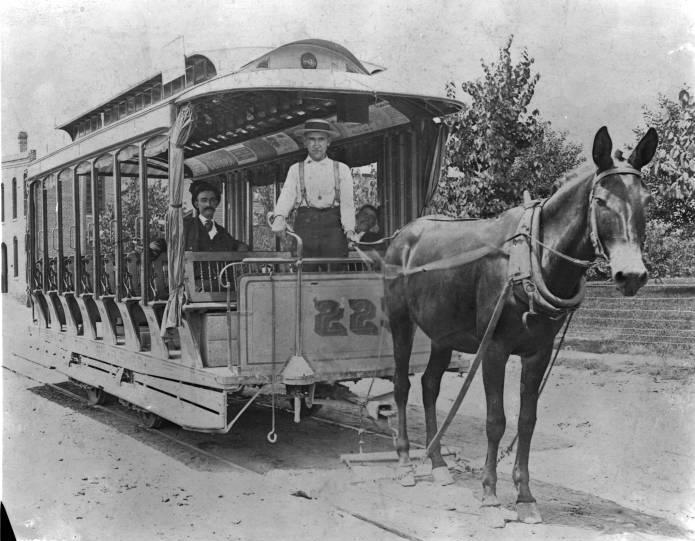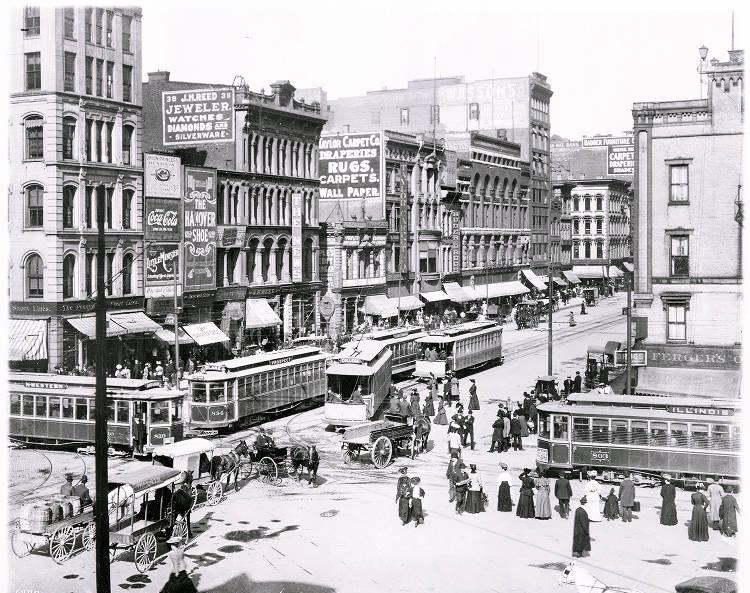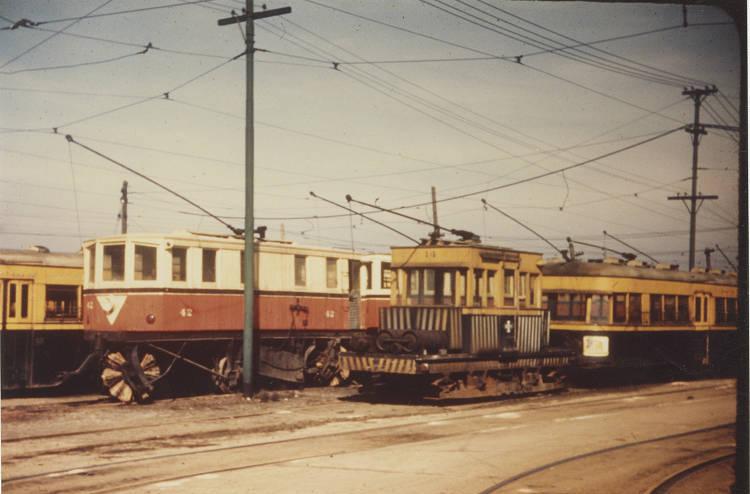The streets of Indianapolis have known three kinds of externally guided vehicles offering scheduled passenger service.

The mule car (1864-1894), pulled by mules along pairs of rails, typically had 14 passenger seats. The electric streetcar (also “street car” or “trolley car”; 1890-1953), pulled along rails by an electric motor or motors drawing power through a trolley from an overhead wire, usually seated 40 passengers. The 40-passenger trackless trolley (or “trolleybus”; 1932-1957) ran on rubber tires powered by an electric motor and two trolleys connected to positive and negative overhead wires.

The Citizens’ Street Railway Company operated mule cars on Illinois Street in 1864 and expanded the streetcar system steadily. Under various franchises, it reached Irvington, Haughville, and other suburbs. Founded by New Yorkers, control passed to a group led by William H. English in the mid-1860s and then in 1877 to one led by Tom L. Johnson, a street railway entrepreneur. In 1889, the company began converting the system from animal to electric power (1890-1894) before experiencing financial problems.
The Indianapolis Street Railway Company bought the system in 1899 and opened its use to in 1900. The company also bought control of the Indianapolis- line (opened in 1894) in 1902. The Indianapolis Traction and Terminal Company leased the system in 1903, made extensions, and built the .
Lessor and lessee merged in 1919 as the Indianapolis Street Railway Company. It began operating buses in 1925 and bought a rival bus company in 1927. The company went into receivership in 1930 (along with the Terre Haute, Indianapolis & Eastern Traction Company, which had wholly owned it since 1920), although it continued to operate.

In 1932, Indianapolis Railways, Inc. (renamed Indianapolis Transit System in 1953) purchased the system and became the first transit operator anywhere to use the trackless trolley in downtown traffic. Gradually, this vehicle—quiet, fumeless, and using an easily maintained guidance system—replaced the traditional streetcar (last used January 9-10, 1953 on the Broad Ripple line).
The trackless trolley ceased to be used in Indianapolis in 1957 when it was replaced by the bus, which was even more maneuverable and had no wires to maintain.

Help improve this entry
Contribute information, offer corrections, suggest images.
You can also recommend new entries related to this topic.